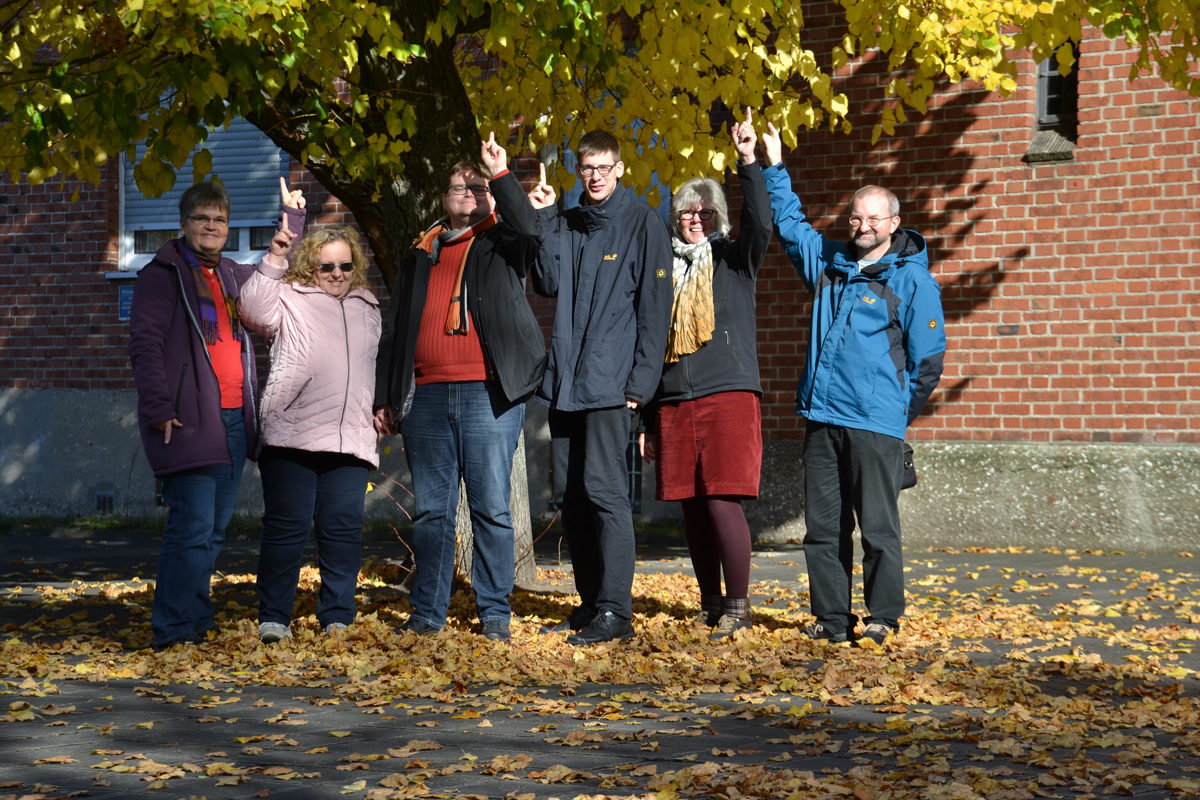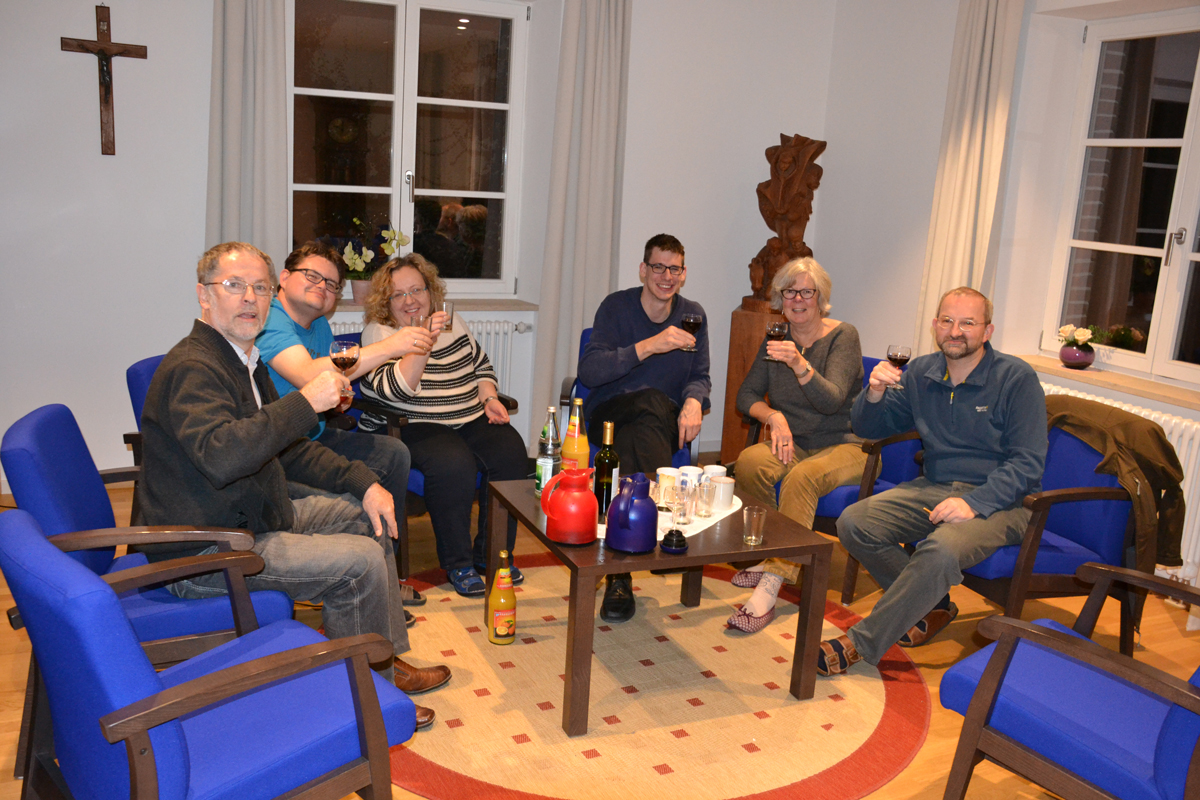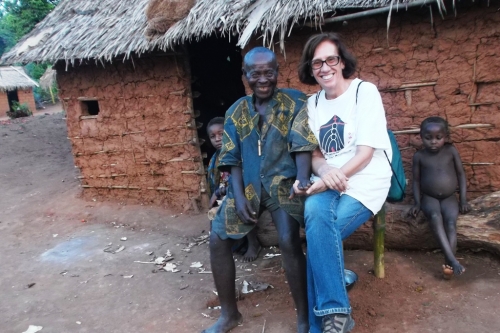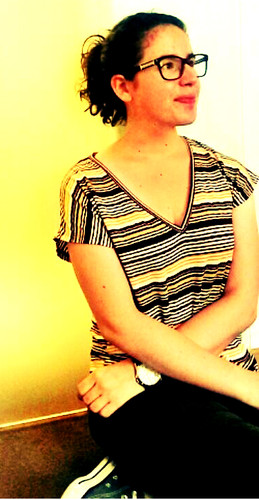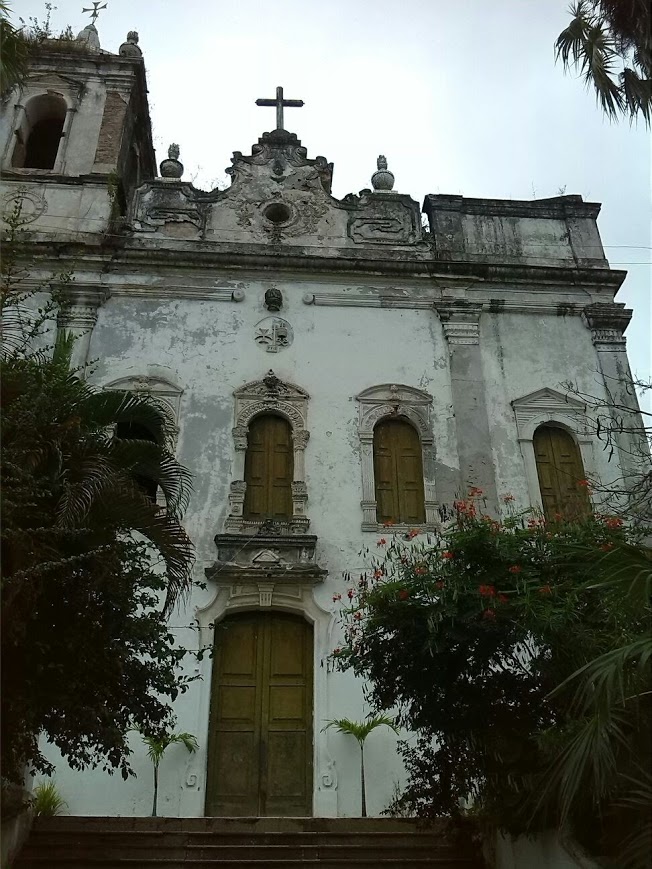 I am close to the end of my three year missionary commitment in this beautiful Brazilian land that has given and taught me a lot.
I am close to the end of my three year missionary commitment in this beautiful Brazilian land that has given and taught me a lot.
I already feel a sad void for what will happen, a feeling that will call to mind faces, situations, stories, important moments that left a mark on my missionary experience and have changed me, since I allowed them to change me and make me grow a little more.
It is good to change when Life shows you paths that can only be healthy for your heart, for better or for worse.
Mission also means growth, meeting the Other, the meeting between you and Them, with God who makes us Us, and a You.
You end up meeting an itinerant God, who never stops moving and amazing you. A God who walks barefoot with you: “take your sandals off your feet, for the place you are stepping on is holy grounds!”
And this is what I did, walking barefoot in the marvel of discovery and self-discovery, knowing that God was walking with me.
I chose to end my three years of missionary commitment in Salvador de Bahia in a community that welcomes street people. The community is called Trindade.
It has been a totally different experience from my previous ones. I left prison work, which I hope to continue in Italy, in order to get to know another very hard and hurtful social reality, the life of street people.
The Community of Trindade is ten years old and it is located in a neighborhood close to the harbor and to a viaduct where many street people meet. The house is an inactive church building which has become a temporary home for those who are seeking to change their lives or at least try to.
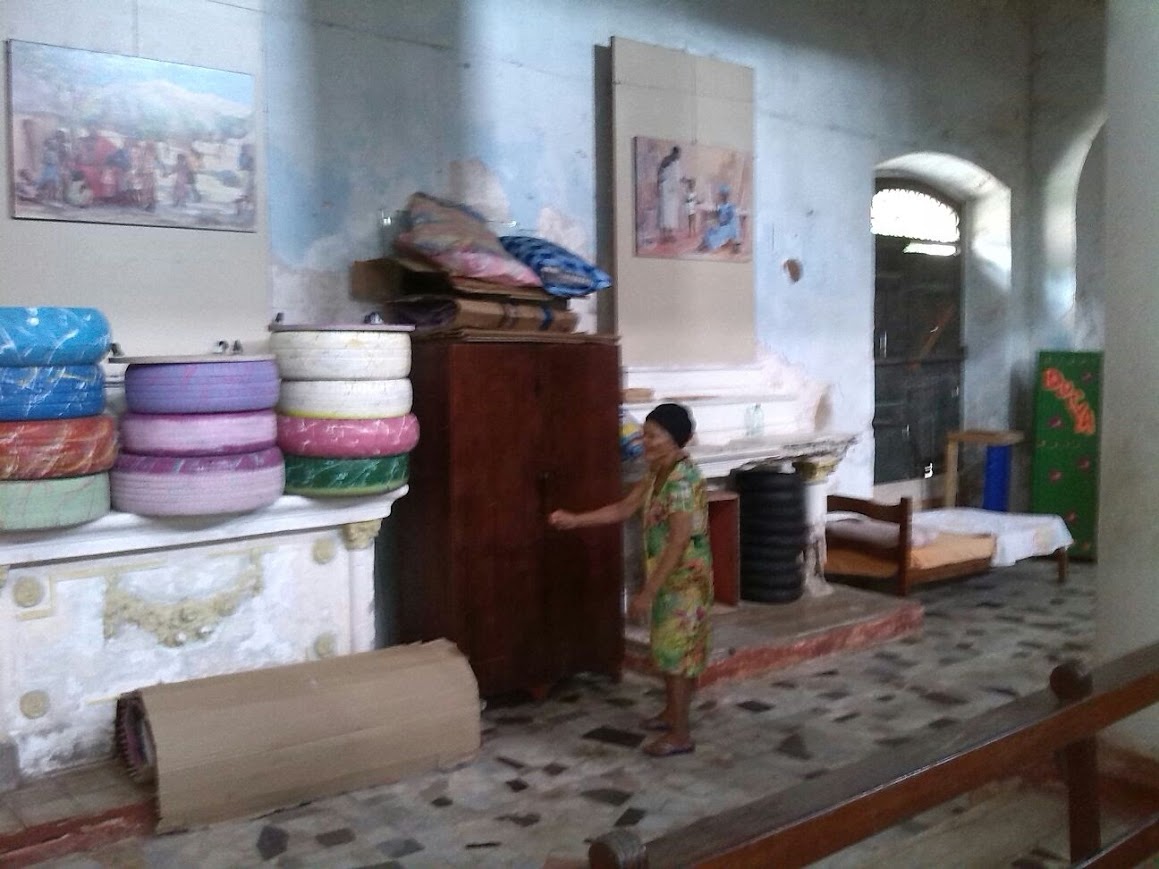
Everything happens gradually. They keep on sleeping on the floor inside the church and begin a recovery coming from within, through self-esteem and a search for one’s identity.
When you live on the street you lose everything, not only material things, but you lower yourself to the point where you no longer recognize yourself, lost in an emptiness that devour you, where alcohol and drugs consume you on a daily basis. You no longer know who you are and have no dreams to build on.
Hunger, cold, the search for a safe sleeping place become the day to day priorities.
Dependence on alcohol and drugs lead you to taking chances, through stealing or prostitution until you lose your dignity.
This community was born of the meeting of Bro. Henrique, a Frenchman, and a street person who, looking for a safe place to sleep, came across this abandoned church.
Bro. Henrique is an itinerant monk who, years ago, chose to live on the street in order to know first-hand the dramatic situation of street people, by becoming neighbor to them and live with them.
He picked this church as a nightly refuge and in time it developed into a community, a home for those who have no home and a beacon of hope.
Today it gathers 35 men and women.
The Trindade Community is not an end, but rather a place of passage, of transition.
It is a place where one can get away from dependency on alcohol and drugs, find a job, be able to stand on your own two feet after years spent on the street.
It is like trying to glue back together parts of you that have been disconnected, in order to see again the original shape that was lost.
It is a simple community where everyone helps and cooperates to its upkeep and wellbeing of all.
They all cooperate and make themselves useful from the kitchen to the cleaning, the garden and some artisan activities, each one according to his/her talents and limitations.
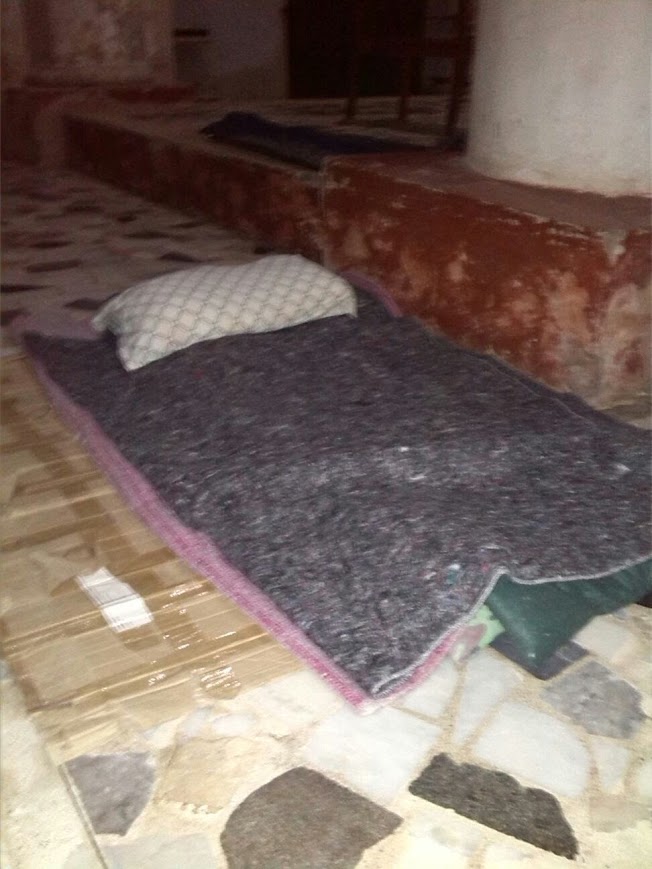
I, too, have my cardboard where I sleep on the floor and I help out in everything.
I am learning what it means to do this: carefully store away my cardboard which is my mattress, roll it up in order to spread it again the following night. When I walk down the street now and see a piece of cardboard I feel like saying: “Look, that’s a bed!” because for a number of people that is exactly what it is, a home on the street.
Mission helps you see things from different points of view, especially from points where people do not like to dwell or look from.
You learn that you can live with little, what it means to sleep on the floor, to be hungry, not to be able to wash, what it means to be at the periphery of existence.
A little at the time, with kindness and by being available, I am beginning to learn the stories of the people who live in the community: they are stories from the street, of drugs, alcohol, losses and violence.
The words used are harsh and full of hurt and of scars.
In this experience, just like in my prison pastoral, I learn the most beautiful and interesting lesson: you need to learn to listen without judging and to make yourself neighbor.
In the community we also have a small newspaper, Aurora de Rua (Dawn of the street), written by the street people themselves. It deals with their situation, their lives, and their stories and with the importance of recycling. Yes, because many of their handcrafted products are made of discarded material and junk.
Behind all this there is great pedagogy: to be able to construct beautiful and useful things out of what other people consider useless junk.
This is how street people or prisoners, referring back to prison ministry, think of themselves as the rejects of society.
But everything is reborn to life, a new Life.
The paper helps to spread news and the realities of the street people, who are often discriminated against, excluded, abandoned and judged. There are stories that touch your heart and help you understand the depths of some human situations, so harsh and hurt.
On Thursday night the community opens its doors to the street people of the project “Get up and Walk,” created by the community itself in cooperation with the diocese of Salvador.
Unfortunately the Church cannot hold too many people and the street problem is vast.
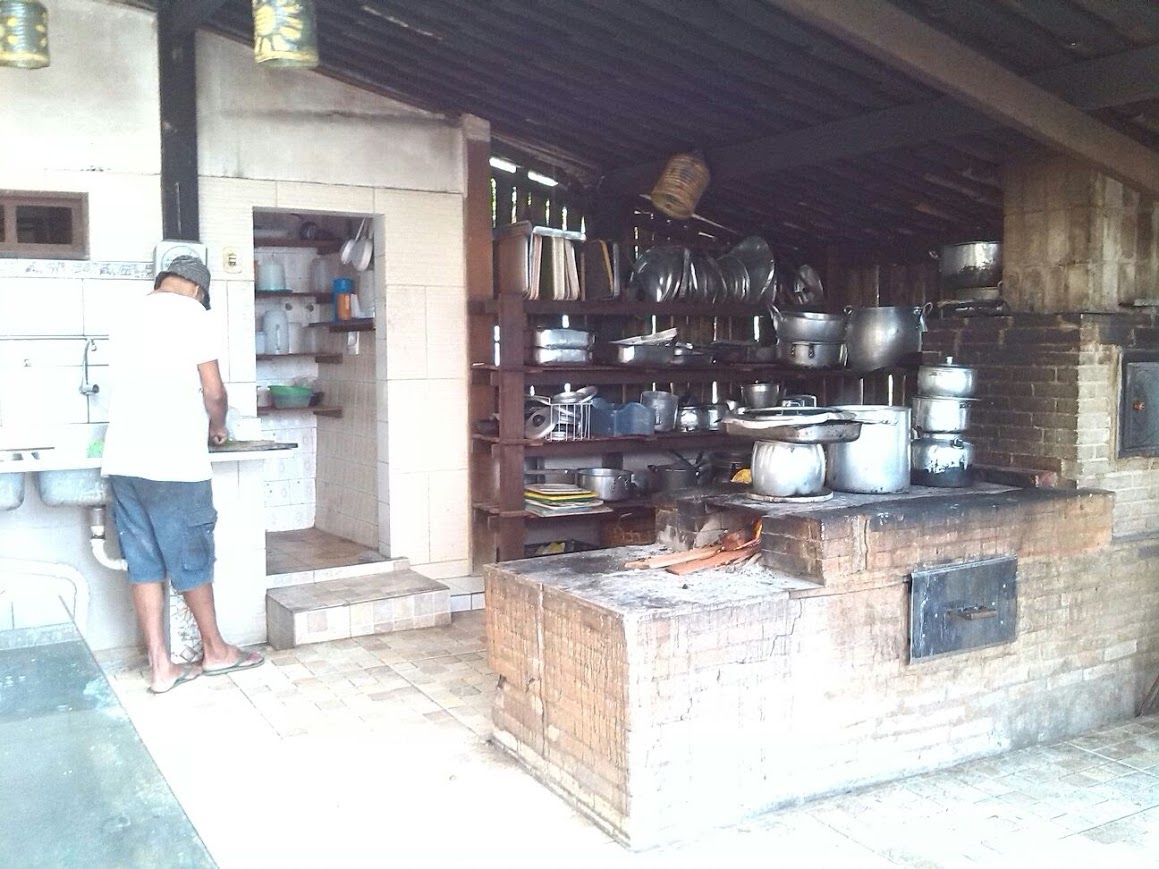 The project is a place where street people can find psychological help and assistance in filling out forms for ID cards, work papers, or also for recreational activities, a place where to shower, find clothing.
The project is a place where street people can find psychological help and assistance in filling out forms for ID cards, work papers, or also for recreational activities, a place where to shower, find clothing.
For those who so wish, Thursday nights are a way to get to know the community, have a moment of prayer, a common meal and a place to sleep. These are small steps that help to create awareness, socialization, to share a meal, to be in a quiet place and to pray together…
Thursday nights are open to all, even to visitors, people from the outside who want to share this experience.
It is a very emotional time, as we live through concrete means the Gospel of Jesus who invites all to the same table, to share the bread with everyone, no one excluded.
It is a Gospel that takes flesh in Life and for Life, the Gospel in which I believe, where I meet God and God’s face. This Face of God has many stories, many wounds and lots of beauty. This is why I like the idea of a pilgrim God always walking, within each one of us, living in our stories. I am grateful for this choice and for this last month and a half I will spend in this beautiful and important Community of Life.
I will not say good-bye to Brazil, but simply “until we meet again,” because I will never forsake the relationships I created, the people who walked with me and who taught me to walk. For all of them it will always be, “arrivederci!”
God breathes through our hearts.
Emma, CLM
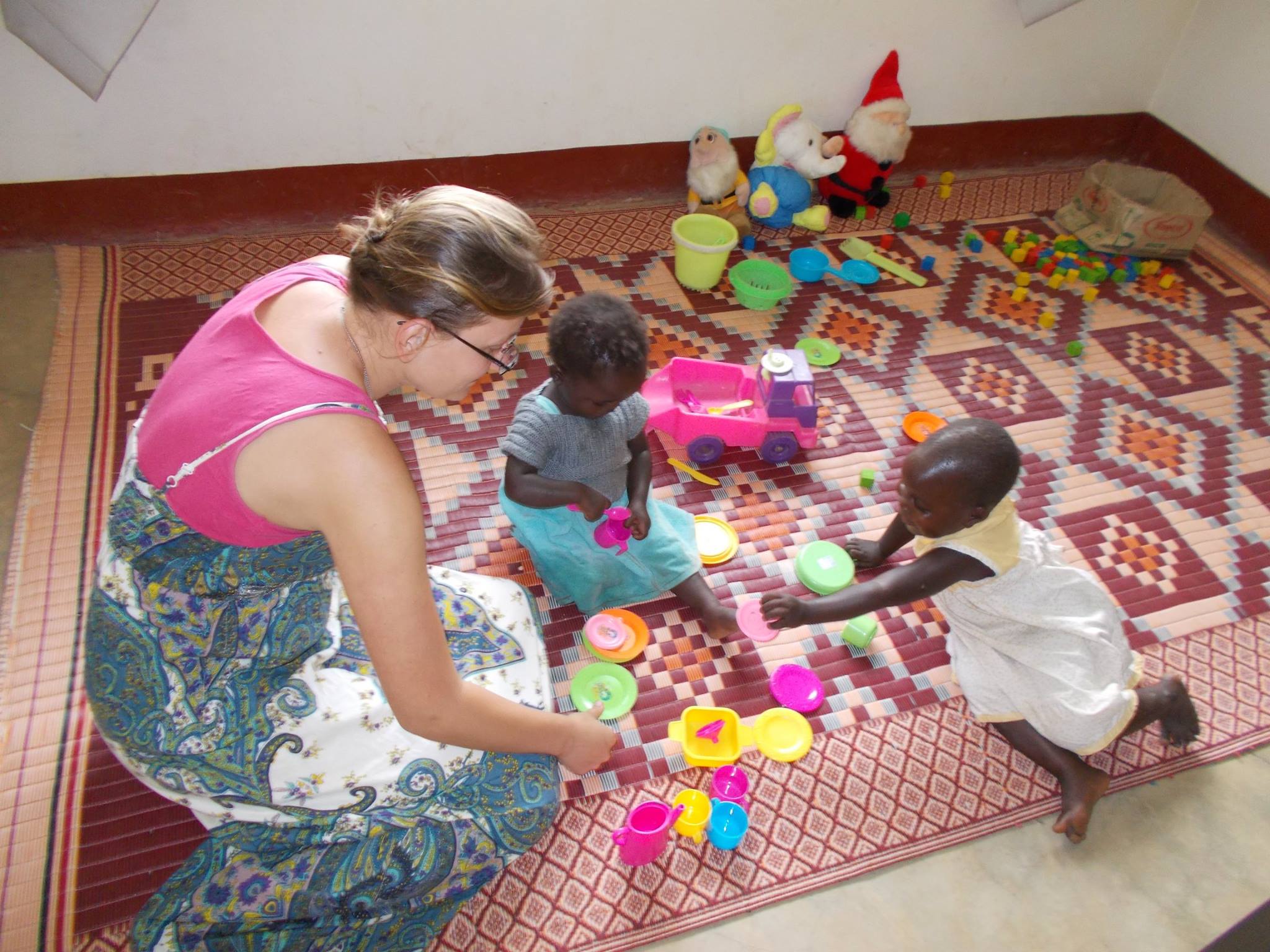 Last days went by with these two ambivalent feelings. Moments of sadness interspersed with moment of great joy- this because of our children.
Last days went by with these two ambivalent feelings. Moments of sadness interspersed with moment of great joy- this because of our children.







